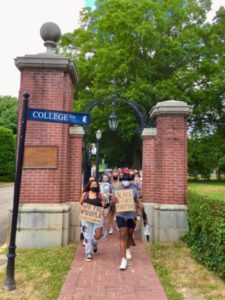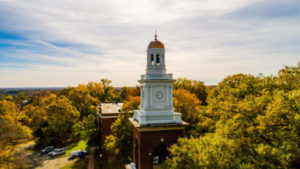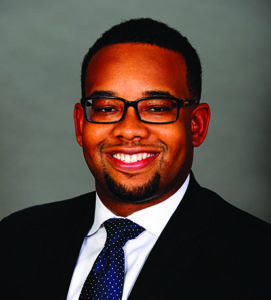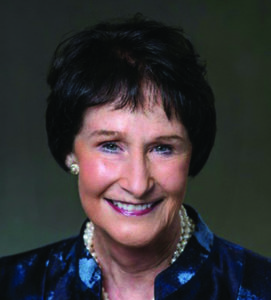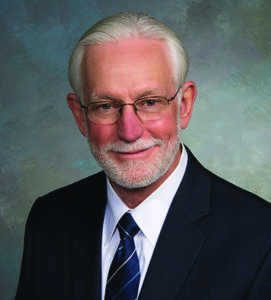Dear University of Mary Washington Community,
Thanks to everyone who has worked so hard in response to the COVID-19 pandemic that forced students, faculty, and most staff off campus back in March. Your efforts during very trying circumstances made it possible for our students to successfully complete the 2019-2020 academic year.
Since then, dozens of individuals have worked tirelessly to develop plans for the return of students to campus in August. This #ForwardUMW – Return to Campus Plan is a high-level summary of all the preparation that has gone into bringing our students back for face-to-face instruction this fall.
Developing this plan was extraordinarily complicated and exhaustive work. The Task Force I appointed to lead the effort was charged under the following guiding principles:
- Promote the health, safety, and well-being of students, faculty, staff, and the surrounding community
- Preserve the ability to fulfill our mission: teaching and learning that serves the public good
- Maintain those University operations that support student success and our ability to fulfill our mission
- Preserve the University’s financial capacity as well as its long-term financial health to fulfill our mission now and into the future
- Honor our community values (ASPIRE – Accountability, Scholarship, Personal and Individual Integrity, Inclusive Excellence, Respect and Civility, Engagement)
Please note that this plan to repopulate the campus must remain adaptable as circumstances change. Until there is a vaccine for the coronavirus, life on campus will not return to normal. Social distancing, face coverings, and methods to monitor and contain the spread of the virus will become part of everyday life at UMW. We will also make changes to the academic calendar to minimize the risk of transmission associated with breaks. To better protect the health and safety of our community, particularly the most vulnerable among us, we must remain diligent in adhering to the guidance issued by public health experts.
In the tradition of our Honor Code, we must take a pledge to do our part. We are fortunate to be a part of a community that understands that sometimes we must make sacrifices to contribute to the common good. Even still, it is important to remember that this plan is intended to mitigate the risk of exposure to the virus, but it cannot completely eliminate that risk.
Thanks again for everyone who has worked so hard during this stressful time. Even though we have operated in isolation these past several weeks, your response to this challenge has demonstrated the strength of this community. As we inch closer to the day we begin moving students back into residence halls, I am increasingly confident that the 2020-21 academic year will serve as a testimony to Mary Washington’s resolve and commitment to our students.
With gratitude,
Troy
#ForwardUMW – Return to Campus Plan
University of Mary Washington
Executive Summary
June 18, 2020
Overview
This is an executive summary of the work of the President’s Task Force charged with developing a “return to campus” plan for the University. It is designed to provide further details to the UMW community about the fall semester and is being released now to give our community the first preview of a much more detailed plan to be submitted to the State Council of Higher Education for Virginia (SCHEV) by July 6th. All institutions of higher education in the Commonwealth are required to submit plans for “reopening” which will be reviewed by SCHEV. The University’s final plan will be available to all members of the UMW community on umw.edu concurrent with its submission to SCHEV.
UMW’s campus plan follows the guiding principles outlined by President Paino[1] early in this process and is based upon the guidance of the Governor’s Forward Virginia Blueprint, the Higher Education Reopening Guidance, the Virginia Department of Health (VDH), the American College Health Association (ACHA), and the Centers for Disease Control and Prevention (CDC). The plan includes details for (1) repopulating campus, (2) monitoring health conditions to detect infection, (3) containment to prevent the spread of the disease when detected, and (4) shutdown considerations as dictated by severe conditions and/or public health guidance. It is important to note that the fluidity of this pandemic only allows for a snapshot, using the conditions and knowledge of this moment, as a framework. Planning and tactical implementation will necessarily evolve and change as circumstances warrant.
We are planning for multiple scenarios this fall. Faculty – with the support of the Center for Teaching, Digital Learning Support; the Office of Disability Resources; and the Library – are engaged in intensive work to support all forms of instruction, including accessible online instruction and remote learning. Regardless of the three campuses’ operational status, these will be features of our approach to instruction. Our intention is to support, to the extent possible, all of our students regardless of where or how they receive instruction.
This summer, faculty are participating in a newly offered four-week instructional design workshop with the goal of ensuring the best aspects of the UMW experience – substantive interactions, collaborations, and connections between faculty and students – are infused in every class. The topical focus of this workshop will include (a) structure and communication, (b) assignments and feedback, (c) content creation and curation, and (d) student engagement. This tremendous effort by our faculty will ensure that we maintain the same high standards and quality, regardless of modality. Ultimately, a quality educational experience is about the knowledge and expertise of the faculty and how much time and attention they give to their students’ development and work, as well as students’ commitment to learning.
In order to support the many different needs of students and faculty, as well as the University’s social distancing requirements, UMW will offer myriad types of classes this fall. We know students value in-person experiences, so the majority of our fall 2020 classes will be just that, with “social distancing” incorporated. For sure, all courses will employ some aspect of virtual experiences, if for no other reason than the fact that following Thanksgiving, the final week of instruction and finals will be conducted remotely. All classes, regardless of modality, will continue the Mary Washington tradition of valuing close interactions between faculty and students.
Throughout campus, staff also are actively and energetically preparing their areas for a return to campus under the guiding principles set forth by President Paino. With direction and support from Human Resources and the Office of Equity and Inclusion, staff members are finalizing plans for review by their respective vice presidents and the Task Force. The guiding force in all preparations is support for the institution’s educational mission and commitment to the UMW student experience.
Fundamental to a return to campus will be an invigorated sense of community responsibility with behavioral expectations to support the health, safety, and well-being of all. Each one of us – faculty, staff, and students – will need to share in this collective task. Consequently, many of the steps outlined in this plan will be successful only through a shared sense of purpose, a commitment to equity, and communal action that aligns with our expressed values. In this respect, ASPIRE (Accountability, Scholarship, Personal and Individual Integrity, Inclusive Excellence, Respect and Civility, Engagement) serves as a critical element to anchor our efforts as we seek to return to campus. #ForwardUMW will make an educational campaign around these values a central element of our return to campus.
Public Health Conditions and Considerations for Reopening Campuses
UMW’s return to campus plan assumes several “gating conditions,” which are necessary prerequisites for the campus to open, as outlined in the Higher Education Reopening Guidance issued by Governor Northam. They include:
- Positive trends in public health in the Fredericksburg region consistent with the Forward Virginia Blueprint
- Health care capacity in which local health care facilities are operational and capable of serving the regional population if there is a surge in cases
- Adherence to sound public health principles – namely that we have a plan in which the UMW community will support and embrace safety precautions that include washing hands, wearing masks, maintaining social distance, and generally agreeing to keep each other safe
- A campus preparedness plan developed and consistent with the guidance set forth by the Commonwealth
Consistent with CDC principles, UMW’s plan seeks to minimize the risk of transmission by offering some virtual-only learning options and utilizing social distancing for all in-person classes, activities, and events. UMW will not hold full-sized, in-person classes, activities, or events for the foreseeable future. Even during Phase Three of the Forward Virginia Blueprint, in-person events are likely to be limited until a vaccine is widely available.
Repopulation Plan
To reduce the risk of transmission and community spread of COVID-19, UMW will alter its academic calendar to eliminate breaks, reduce travel, and utilize limited remote instruction and other curricular modalities and options. For fall 2020, this means that we will hold classes on Labor Day, will not have Fall Break, and will not return after Thanksgiving. The final week of classes and exam week will be conducted remotely. Definite decisions about the spring schedule will be announced as soon as possible.
Leadership for UMW’s continuing response to the COVID-19 pandemic will involve establishing the temporary role of a COVID-19 coordinator and the creation of a COVID-19 team that will be responsible for working closely on all aspects of the University’s ongoing, coordinated efforts. The COVID-19 coordinator will be a temporary reassignment of an existing employee. This team, which will include representation from Emergency Management, Student Health Services, Human Resources, Facilities Services, Student Affairs and Academic Affairs will coordinate closely with public health officials in the Rappahannock Area Health District and Mary Washington Healthcare.
At this time, the Virginia Department of Health (VDH) does not recommend campus-wide testing of students, faculty or staff upon arrival or at certain set intervals. It is not at all clear that a sufficient number of tests would be available even if indications were that this would be an effective strategy. Testing is further complicated by the likelihood of false positive or false negative test results. Instead, UMW will rely upon diagnostic testing of symptomatic individuals and asymptomatic close contacts as described below in the monitoring and containment plans.
In accordance with the Commonwealth’s guidelines, many UMW staff will continue to telework. Prior to the return to campus, members of the community will complete an initial education and training which will be part of a larger communication and shared responsibility campaign on COVID-19. The “Mary Washington Pledge” will be a precondition for returning to campus this fall. In this pledge, each member of the UMW community will agree to (a) regular self-monitoring and attestation of symptoms, (b) agree not to come to campus if sick, (c) accept University requirements for wearing face coverings, practicing good hygiene, and adhering to social distancing expectations. As part of the campus effort to prepare for repopulation, individual offices are developing their reopening plans in accordance with both CDC and Virginia Department of Human Resource Management (DHRM) guidance.
Move-in for residential students will be staggered over several days to permit social distancing, and participation by family and friends will be strictly regulated. Students will be encouraged to bring fewer personal belongings to campus this fall. Most events for new student arrival will be virtual (e.g. Honor Convocation) so as not to exceed gathering size requirements and physical distancing guidelines.
UMW will employ several strategies related to physical (social) distancing. First, we will generally adhere to an 8×8 (64 square foot) per person constraint on classroom and meeting spaces. This includes all computer labs, dining facilities, common areas, and other gathering spaces on campus. Practically, this will involve moving some larger classes online and moving smaller classes to larger spaces, including facilities that have not typically been used for classes, such as Dodd Auditorium, Jepson Alumni Center Ballroom, and Chandler Ballroom. Second, we will adhere to American College Health Association (ACHA) guidance for gatherings, which will be limited to 30 for the foreseeable future. Third, UMW Dining will utilize more “grab and go” meal options, eliminate buffets, reduce capacity in dining spaces, expand outdoor dining, while simultaneously creating more spaces for pick up (for example, offering sushi pickup in the Underground).
The University will provide support for increased hygiene practices and make greater use of cleaning and disinfecting. More than 1,000 no-touch hand sanitizing stations will be strategically placed across UMW properties and plexiglass barriers will be installed in high-use windows and reception desks (e.g. Lee Hall, UC, HCC, and Simpson Library). Self-cleaning of desks and work surfaces will be part of the UMW plan, even as Facilities Services increases rotational cleaning of bathrooms and other high-touch areas. Sanitizing wipes will be available in all classroom and meeting spaces, and ubiquitous throughout UMW buildings, including offices. The time between classes has been increased to 20 minutes to permit self-cleaning of learning spaces. Facilities Services will adhere to CDC guidelines for all cleaning protocols and is purchasing 40 electrostatic spray cleaning guns to support enhanced and efficient disinfecting and cleaning.
Residential living will be different this fall. Some residence halls will have lower densities, and all will strictly reduce use of kitchens and common areas. Residence Life staff will receive increased training and new guest policies will significantly limit traffic into and through the residence halls. Student life is investigating creative means of insuring safe social interaction, entertainment, and wellness activities to encourage engagement and community building.
Vulnerable individuals (e.g. those 65 years or older, those with underlying health conditions) will be supported through options that mitigate exposure to risk, including the use of telework and moving approximately one-third of all classes to online learning. Students should work with the Office of Disability Resources, and faculty and staff should contact their supervisor and the Office of Human Resources for additional supports. International students will be required to follow CDC guidelines for quarantine prior to entering campus.
Face coverings (masks and, in some cases, face shields) will be worn by students, faculty, staff and visitors. Training and education will incorporate the face covering imperative. All members of the UMW community will be required to do this when in public spaces with others, including when at least six feet of physical distance cannot be maintained and in shared office spaces, hallways, and stairwells.
The University is exploring options to enhance student health services to support both typical health services as well as COVID-19 needs, such as oversight of quarantine and isolation spaces. All health services staff will have medical-grade PPE for COVID-19, which will be used even for basic operations and typical health services. A working group has been formed around enhancing mental health services with a report due in early July.
UMW Athletics is planning to welcome student-athletes this fall. The department has a core planning team that is focused on ways to provide sport participation in a safe, healthy, and equitable way. Ongoing planning for Athletics will align with UMW’s broader planning, and adhere to local, state and NCAA guidelines. Facility-specific health and safety protocols, personal protective equipment (PPE), administrative controls and other applicable distancing and sanitation guidelines are being addressed. Updates for return to play protocols will be communicated to head coaches and the UMW community as information becomes available.
Monitoring Plans
UMW will utilize a daily symptom self-reporting tool to monitor the health of the campus populations and will make available self-check temperature stations on campus. All members of the community, who are physically on a campus, will be expected to participate in and support campus disease surveillance. The University will also have a series of protocols for all students, faculty, and staff, which includes testing as recommended by public health.
Containment Plans
UMW will partner with the Rappahannock Area Health District of the Virginia Department of Health for contact tracing in order to support the rapid quarantining of individuals who are suspected to have been in close contact with someone who is confirmed positive with COVID-19. UMW is converting appropriate residence halls into dedicated quarantine and isolation space to support the containment of COVID-19 on campus. Such spaces will be outfitted with medical amenities (e.g. thermometers, pulse oximeters), refreshments and snacks, and supplies (e.g. linens) to support a 14-day quarantine. Sodexo will be providing meal delivery to individuals in these spaces.
Shutdown Plans
In consultation with local and state public health officials, a campus dismissal (return to remote learning) or shutdown (closure of campus offices) would be necessary under several conditions. For example, such conditions could include:
- Sustained negative trends in public health data, including a return to Phase Two under the Forward Virginia Blueprint for the Rappahannock health district,
- Concern from local health systems that hospital bed capacity is limited and/or testing capacity is insufficient,
- Broadscale breakdown in adherence to sound public health principles, and
- Supply chain or capacity constraints which undermine UMW’s repopulation, monitoring, and containment plans (e.g. insufficient cleaning supplies, lack of PPE, or exceeding quarantine capacity).
Technology Investments
To support these plans and the continuity of operations, the University has extensively surveyed students, faculty and staff to more fully understand gaps in hardware and internet access, which were manifested when classes were forced to go remote with little warning in the spring semester. That feedback is being used to make decisions and a number of investments, including securing WiFi access spots for individuals (students, faculty, and staff) with limited home access, an enterprise site license of Zoom for all students, faculty, and staff, as well as the installation of webcams and document cameras in classrooms. Jabber, a remote access phone client, is available through the Help Desk so that individuals working remotely can answer their office phone from their computer irrespective of their location. Other investments are under investigation, including the creation of virtual computer labs so that members of the University community have access to licensed software from anywhere (thereby reducing reliance on dedicated computer labs with reduced occupancy).
Next Steps
Further details of this plan will be developed in the coming days as UMW prepares its full plan for submission to SCHEV. That plan will be posted on the UMW website prior to July 6, 2020. We know that many of you have questions. We do as well, and we will continue to refine our answers even as we encounter new questions. This is especially relevant to “move-in” dates and course modality. We anticipate having further answers to those questions by the time we submit our plan in July.
Thank you for your continuing support and commitment to reopening UMW.
[1] (a) Protect the health, safety and well-being of students, faculty, staff and the surrounding community, (b) Preserve the ability to fulfill our mission – teaching and learning that serves the public good, (c) Maintain those university operations that support student success and our ability to fulfill our mission, (d) Preserve the University’s financial capacity as well as its long-term financial health to fulfill our mission now and into the future, (e) Honor our community values (ASPIRE—Accountability, Scholarship, Personal and Individual Integrity, Inclusive Excellence, Respect and Civility, Engagement).
